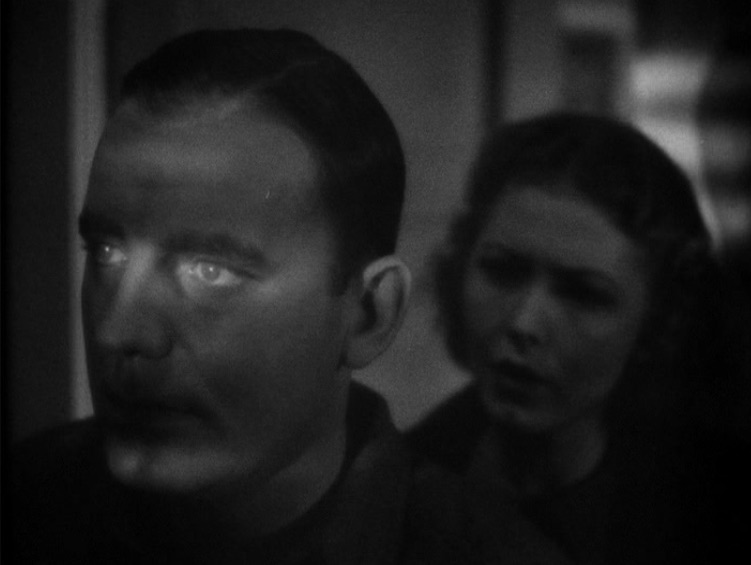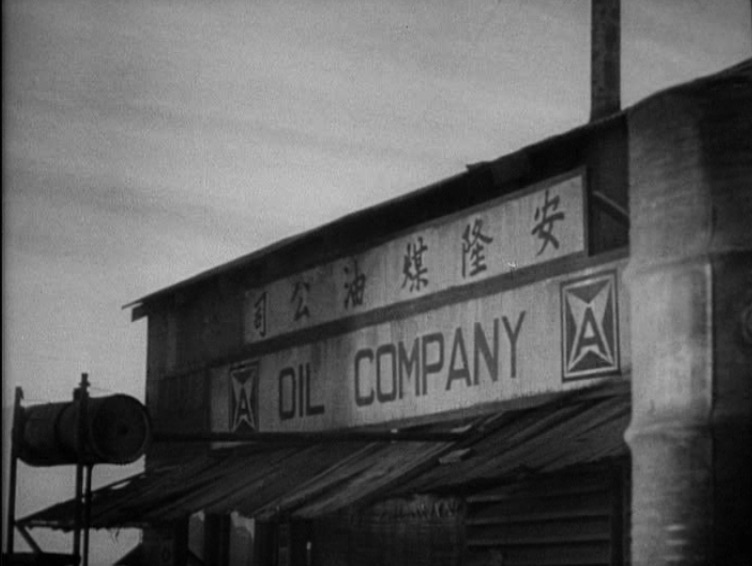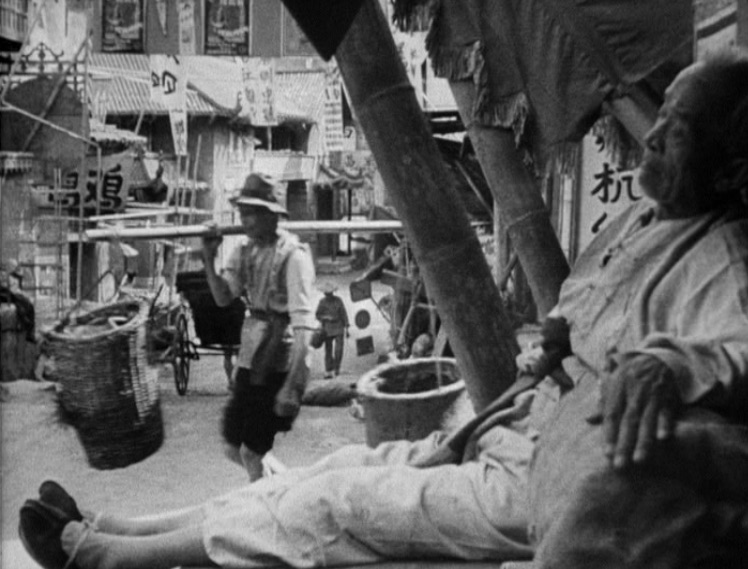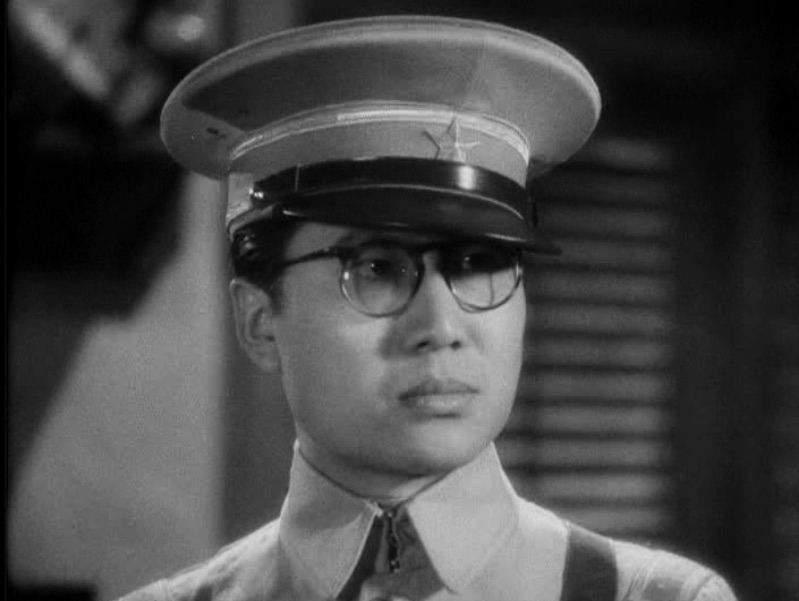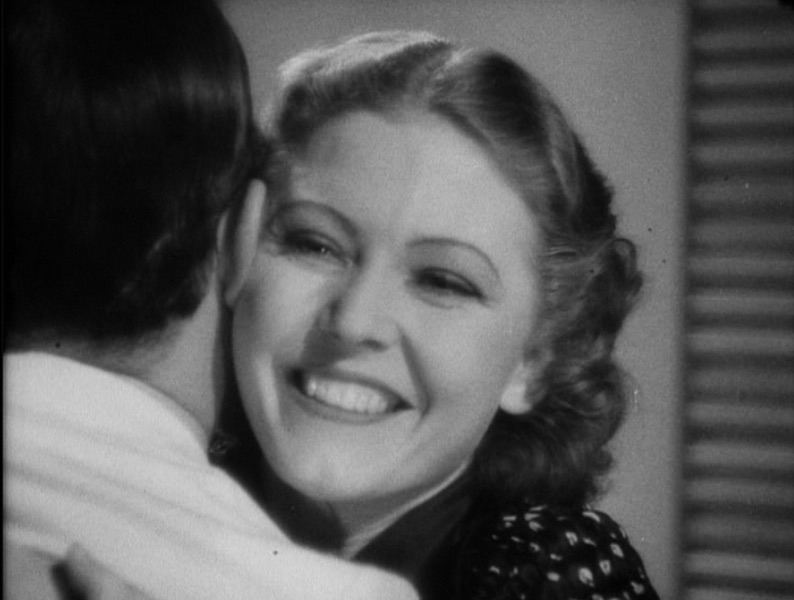Saturday May 04, 2019
Movie Review: Oil for the Lamps of China (1935)
WARNING: SPOILERS
Remember Boxer, the strong, dedicated horse from George Orwell’s “Animal Farm,” who, despite all evidence, never loses faith in Comrade Napoleon and the other pig leaders, and who, after years of service, finally collapses, sick, and instead of being nursed he’s tossed away—sold to a horse slaughterer and glue boiler? That betrayal and off-screen death traumatized me as a kid; it haunts me to this day.
Well, imagine a movie in which a capitalist version of Boxer never loses faith in the company he works for—despite all evidence—until a final betrayal. Then, unbeknownst, his wife stands up for him, gets him the job he deserves, and restores his faith:
He: You see, honey? The company does take care of its own.
She (hugs him happily): Yes, dear.
Those are the last lines of “Oil for the Lamps of China,” a 1935 Warner Bros./Cosmopolitan production starring Pat O’Brien, which was based on a 1933 bestseller by Alice Tisdale Hobart.
Basically our hero is a Boxer for whom the scales never fall.
That’s pretty fucked up.
Boxer rebellion
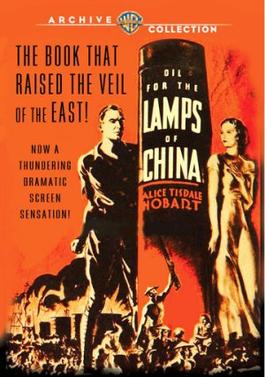 The movie, sadly, isn’t good. It’s a soap opera: melodramatic and episodic. I could imagine it being made into a miniseries in the 1980s starring Richard Chamberlain.
The movie, sadly, isn’t good. It’s a soap opera: melodramatic and episodic. I could imagine it being made into a miniseries in the 1980s starring Richard Chamberlain.
That said, you get a real sense of Hollywood’s respect for books and literature in the early days of sound. The transition between episodes is pages turning in a book—Hobart’s book—while the poster is not only dominated by Hobart’s novel but include Hobart’s name on the spine. The stars aren’t even mentioned.
If the movie feels like a warped, capitalist precursor to “Animal Farm,” it begins with a kind of warped, capitalist precursor to Chaplin’s dance with the globe in “Great Dictator.” Here, in town hall setting, around a giant globe, an oil company executive with a professorial pointer lectures his new recruits:
Gentlemen, these are the last words I will address to you. Attend them well and remember them long. The company is sending you out to China to dispel the darkness of centuries with the light of a new era. Oil for the lamps of China, gentlemen. American oil. Helping to build a great corporation, helping to expand the frontier of civilization, is a great ideal, gentlemen. The ideal of a man.
You will have hardships. You will encounter dangers. And you will be thwarted time and time again by foreign traditions and the logic of the Orient. But you have the youth, the vision and the courage to follow that ideal with the unfounded faith of Galahads going into a strange land. And believe me, gentlemen, you may work, believe, and live knowing the company always takes care of its own.
As it transitions, those words echo in the ear of idealistic engineer Stephen Chase (Pat O’Brien): ...the company always takes care of its own. So we know where this is going.
Chase is sent to Manchuria, windswept and dusty, where, along with his other work, he comes up with an idea for an oil lamp that will be longer lasting for the consumer and good for the company (it will use the company's oil). Then he goes to Japan to meet his bride, who’s arriving from the states via Honolulu. Instead, he gets a Dear John telegram. The first betrayal is a woman.
This leads to the oddest part of the movie. He meets Hester Adams (Josephine Hutchinson), thoughtful with a far-off look, and his earnestness and loneliness convinces her to go to dinner with him. She, too, has been abandoned—or something. Long story short: Because he’ll lose face if he doesn’t bring back a bride, she agrees to go with him as that bride. Why? Everyone has to have faith in something, she says: for men it’s a job and for women it’s a man. “I don’t need love because I’ve never had it,” she says, “I have faith in you because you have faith in something. What that something is doesn’t matter. I think I can be useful and happy with you.”
That's pretty fucked up.
At first they’re pretending to be in love; then they’re not; then she gets pregnant. Are they married? I’m kind of shocked the Hays Office allowed this.
We also get the first in a series of company betrayals. Ten thousand versions of the lamp Chase invented are being shipped to China. Yay! Except now they’re called the “Haley Lamp,” after the station chief in Shanghai, who took credit. Meanwhile, Steve’s kindly boss (Arthur Byron, the judge in “The Mayor of Hell”), who is two years from retirement, is being sent to “the tanks,” a demotion. Everyone is upset but he continues to defend the company ... right up until the point when he kills himself. A self-immolating Boxer.
That's pretty fucked up.
He’s replaced by an asshole, McCarger (Donald Crisp), who sends Stephen to the tanks. There, he’s given a kind of Sophie’s Choice: stay with his wife giving birth or drive to the tanks, which are on fire, to save the town and the oil and everything. He opts for the latter, the child dies (“I needed you,” the doc tells him plaintively), and the company chastises him for acting without orders. More, Hester is cold-eyed and unforgiving. “What kind of man are you?” she demands. Until, like a light switch, she returns to her old self. “My ambition, my emotions, mustn’t be mine—but yours,” she says.
That's ... Yeah, you get the idea.
Onto Chow Yang, where, as station chief, he goes through a series of crises.
- The former head man there, Don (John Eldredge), feels like he’s been passed over, so Steve has to mollify him
- Then he has to mollify the local bigwig, Ho (Tetus Komai), because Don was a jerk to him
- This makes Don mad, since he feels you should never stand up for the Chinese in front of a white man; but Don and Steve become friends
- Then there’s drought, and Don’s boy nearly dies of cholera
- Then local businessmen won’t work with the company unless Steve fires Don
- Then there’s a communist revolt, and ransom demands come from a communist officer (Keye Luke)
As chaos reigns (apparently based on the Nanking Incident of 1927), Steve manages to get company workers to safety even as he’s shot. He wakes up in a hospital, where, from the main office, Hartford (Henry O’Neill) greets him and promises him a promotion. Nope. His old pal Bill Kendall gets the job instead because, as he explains, “You think more like a Chinaman than a white man.” They demote him to clerk. They’re trying to force him out.
He’s trying to hang on when Hester leaps into action. She goes to Hartford, mentions her husband’s service, and the oil lamp he invented but never got credit for. Then she says Stephen still holds a patent on it. That gets the company’s attention. So Chase gets the job he deserves, and we get our cynical, happy ending: “You see, honey? The company does take care of its own.”
Yes, dear.
Taking care of its own
Directed by Mervyn LeRoy (“Quo Vadis,” “Mister Roberts,” “No Time for Sergeants”), “Oil Lamps” has a chance to be a good cynical movie about American multinationals in the first part of the 20th century; but it’s just too odd (the way he meets Hester) and melodramatic (the Sophie’s choices he’s given). More, since he remains a company man despite the countless company betrayals, we get frustrated with him. Bored with him, too. We want to slap sense into him.
If you’re curious about Hobart: She lived in China for 16 years with her husband, who worked for Standard Oil. They left after the 1927 Nanking Incident because they felt, as she said in a 1951 Times interview, “that it was only the beginning of the trouble.” In her lifetime, she sold 4 million books, which were translated into 12 languages, and died in Oakland in 1967, age 85.
Laird Doyle, the man who adapted her novel for the screen, had a quicker end. In three years, from 1934 to 1936, 15 of his screenplays for Warner Bros. were made into movies, and three more in ’37. He died in November 1936, age 29. I can’t find the causes. But I’m sure it wasn’t overwork. I’m sure the company took care of its own.
SLIDESHOW
Baseball's Active Leaders, 2023
What Trump Said When About COVID
Recent Reviews
Everything Everywhere All at Once (2022)
Black Panther: Wakanda Forever (2022)
Doctor Strange in the Multiverse of Madness (2022)
Spider-Man: No Way Home (2021)
The Cagneys
A Midsummer Night's Dream (1935)
Something to Sing About (1937)
Angels with Dirty Faces (1938)
A Lion Is In the Streets (1953)
Man of a Thousand Faces (1957)
Never Steal Anything Small (1959)
Shake Hands With the Devil (1959)








